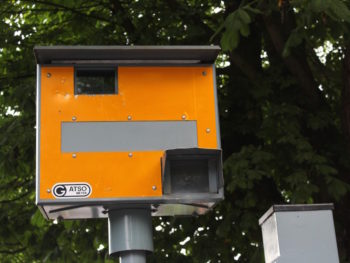Speed limit offences now at highest level ever but mobile phone offences fall
Record numbers of drivers were issued with speeding tickets last year, although the number of handheld mobile phone offences fell.

85% of recorded motoring offences were for speed limit offences, up 1 percentage point on the previous year
Latest Home Office figures on the number of Fixed Penalty Notices (FPNs) issued by police last year, which are based on data from the national fixed penalty processing system (PentiP), show there were 2.5 million motoring offences recorded in 2018 (excluding 354,705 cancelled cases), which resulted in a FPN or another outcome, an increase of 3.8% compared with the previous year.
Over four-fifths (85%) of the motoring offences recorded on PentiP were for speed limit offences (2,105,409), up 1% on the previous year (2,013,830). The number of speed limit offences has increased gradually year-on-year since 2011, and now stand at the highest level recorded, despite the introduction of harsher penalties in 2017. Analysis carried out by Churchill has also found that the number of speeding prosecutions has risen by almost 20% in the last five years.
But it was careless driving offences (excluding the use of handheld mobile phone while driving) that saw the largest increase (in percentage terms) of 20% in 2018 compared with the previous year (from 15,334 to 18,467). Seat belt offences saw a 17% increase from 18,467 to 21,626.
In contrast, use of a handheld mobile phone fell by 27% from 52,993 offences to 38,601. However, as noted in the report, this could be the result of falling numbers of road traffic officers; research carried out by the Press Association two years ago found the number of dedicated traffic police had reduced by around 30% over a decade. And the fact that, for speeding offences, 97% were caught by camera rather than actual traffic officers, compared to 96% in 2017, also possibly indicates reduced police presence.
Meanwhile there were 320,988 breath tests carried out by police, a 2% fall compared with the previous year (when comparing data for 39 forces who were able to provide full data in both years). This fall continues the downward trend seen since the peak of 670,023 breath tests in 2009. A total of 15% of breath tests were positive or refused; the highest proportion since 2007. And as in previous years, more breath tests were undertaken in December than any other month, followed by June, coinciding with police drink and drug driving campaigns.
The data also shows 45% of overall driving offences resulted in driver retraining, while a fine was paid in a further 40% of cases and 15% of cases involved court action (excluding those subsequently cancelled); similar proportions to the previous year
Commenting on the figures, Edmund King, AA president, said: “It is good to see the number of hand-held mobile phone offences drop by more than a quarter, but we must not be complacent as often drivers are still spotted using phones at the wheel.
“Only a fifth (20%) of drivers say there is a visible police presence on their local roads, so a more prominent presence would help to deter the use of hand-held mobiles and texting at the wheel.
“The majority of the 2.1 million speeding offences were caught by cameras. Whilst cameras are a useful tool available to forces to help enforce the law, roads policing cannot be carried out by cameras alone.
“There has clearly been a targeted effort by forces to stamp out people not wearing a seatbelt, as the number of fines and points issued is at a two-year high. There is no excuse for not belting up as it can save your life and the lives of others.
“For more than a decade the number of specialist road traffic officers has reduced by a third, so we need more cops in cars to tackle bad behaviour as well as continued high-profile and memorable road safety campaigns.”















